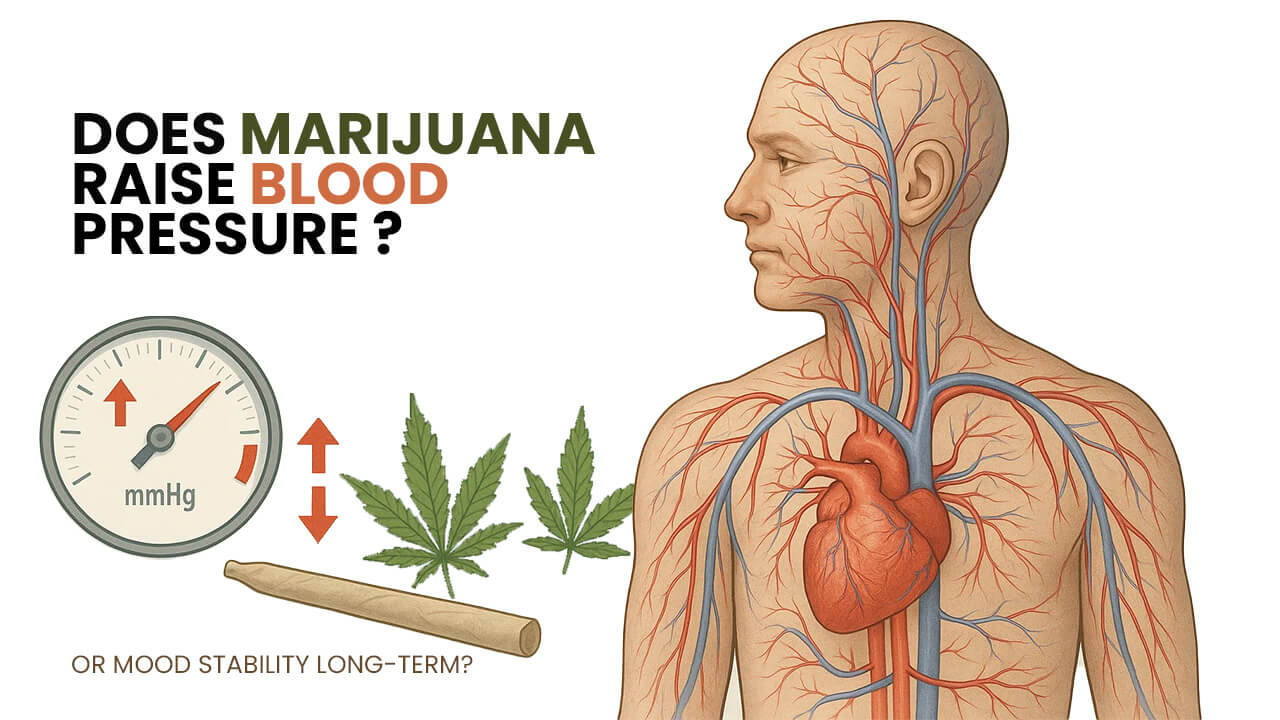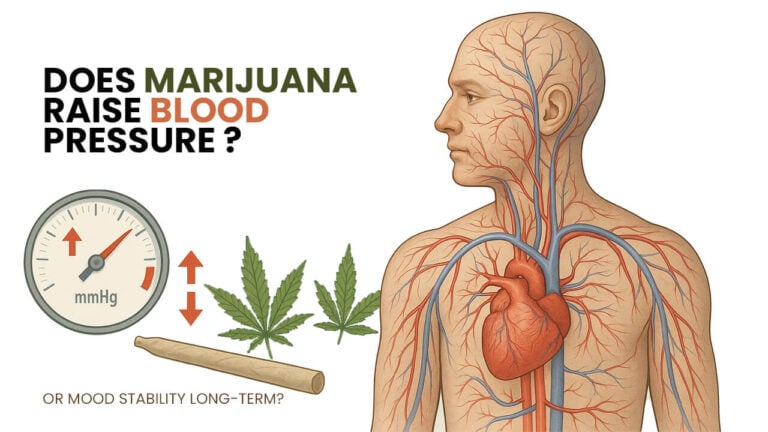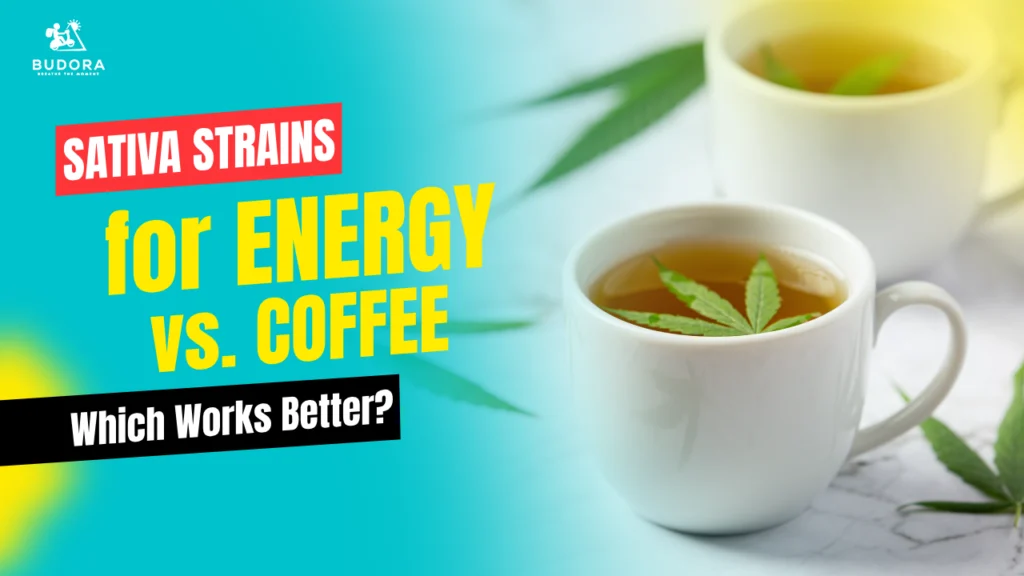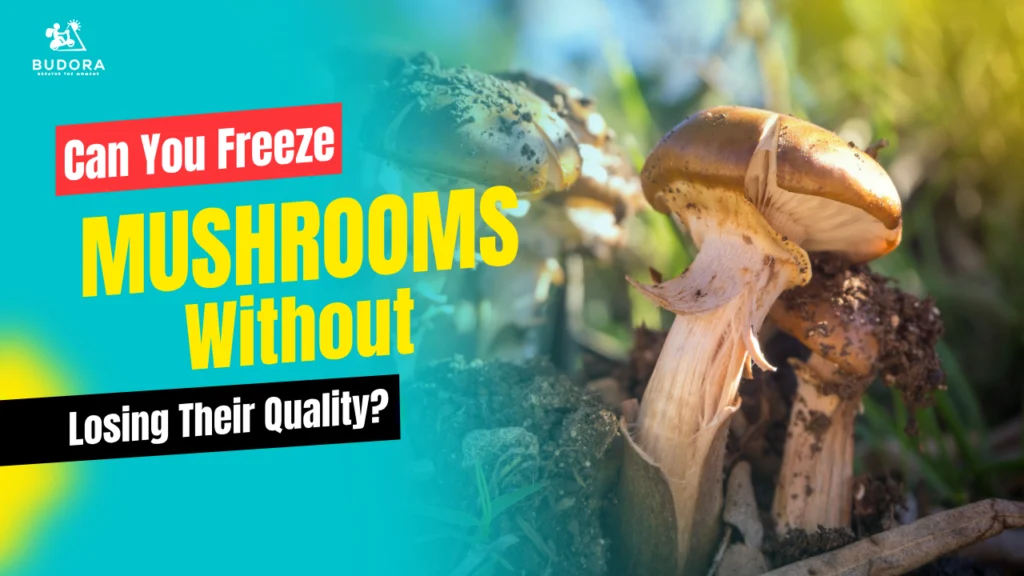Blog


Does Marijuana Raise Blood Pressure? Facts You Should Know
- Budora Team
- No Comments
When it comes to marijuana, most people think about relaxation, stress relief, or its medical uses. However, one health-related question that often comes up is: Does marijuana raise blood pressure? This is an important topic because blood pressure affects heart health, circulation, and overall wellness. Whether you consume ganja drugs through smoking, weed pills, or THC pills, understanding marijuana’s effects on blood pressure can help you make safer choices.
Key Highlights
- Does marijuana raise blood pressure? Yes, it may cause a short-term increase, but long-term effects are still debated.
- Ganja drugs like weed pills and THC pills affect blood pressure differently than smoking marijuana.
- Short-term effects include a higher heart rate and possible temporary increases in blood pressure.
- The long-term impact on cardiovascular health remains unclear and may vary from individual to individual.
- People with hypertension or heart disease should be cautious and consult a doctor before using marijuana.
THC vs CBD: Impact on Blood Pressure Levels
Marijuana contains a range of cannabinoids, but the two most well-studied are THC (tetrahydrocannabinol) and CBD (cannabidiol). Both interact with the body’s endocannabinoid system, but their effects on blood pressure can differ significantly in the short term.
THC is the psychoactive compound in marijuana that produces the “high.” Shortly after consumption, THC can cause a temporary spike in heart rate and blood pressure, particularly in new or sensitive users. This effect may be more noticeable when marijuana is smoked or vaped, as THC reaches the bloodstream rapidly. These reactions are especially prominent when smoking blunts, as discussed in Blunts and Weed, where THC concentration and method of intake significantly impact cardiovascular strain.
However, this initial rise is often followed by a drop in blood pressure (postural hypotension), which can make users feel lightheaded or dizzy when standing up quickly. For those who engage in physical activity, this effect can intensify, as explored in Can You Work Out After Smoking Weed?, which highlights increased heart rate and elevated BP levels during exercise post-THC consumption.
CBD, unlike THC, does not cause intoxication. Research suggests it may have a calming influence on the cardiovascular system, which could be relevant for people with hypertension (high blood pressure). Some preliminary studies indicate that CBD may help reduce resting blood pressure and ease stress-related surges by relaxing blood vessels. While these results are promising, evidence is still limited, and more research is needed to confirm whether CBD could play a reliable role in managing hypertension.
Cannabis oil, rich in CBD, is being studied for its potential to support cardiovascular health by helping to regulate blood pressure and reduce inflammation. How to Make Cannabis Oil offers an excellent breakdown of how oil-based products can deliver cannabinoids without the spikes caused by inhalation.
How Marijuana Affects the Heart and Blood Pressure
Marijuana impacts the cardiovascular system differently depending on how it’s consumed and the individual’s health. When you smoke or ingest marijuana, the active compounds—especially THC (tetrahydrocannabinol)—interact with cannabinoid receptors in the body.
- Short-term effects: Right after using marijuana, many people experience an increase in heart rate and sometimes a slight rise in blood pressure. This is the body’s immediate response to THC.
- Long-term effects: Some studies suggest that consistent marijuana use might lead to lower blood pressure over time, while others indicate risks for heart complications in people with pre-existing conditions.
- Research evidence:
- UK Biobank (91k subjects): Heavy cannabis users had lower systolic/diastolic BP—especially men—suggesting possible tolerance.
- MESA older adult cohort: Showed no increased hypertension risk from chronic use.
So, the answer to “Does weed raise your blood pressure?” is not completely straightforward; it may cause a temporary spike, but the long-term impact depends on the user’s health, lifestyle, and consumption method.
What Research Says: Data-Backed Insights
Studies show that marijuana, especially THC, can cause a temporary rise in heart rate and blood pressure right after use. Over time, some users may develop tolerance, while others experience drops in blood pressure when standing. Research also suggests the effect varies by method: smoking or THC pills create quicker changes than edibles. CBD, in contrast, may slightly lower blood pressure. Overall, marijuana can raise blood pressure in the short term, but its long-term impact is still unclear.
Method Matters: Smoking vs Edibles vs CBD Oils
Smoking/Vaping
Delivers THC and smoke particulates quickly — leading to rapid BP and heart rate spikes — plus lung irritants. These effects are particularly concerning for new users or those with preexisting conditions, as highlighted in First Time Using Cannabis? Here’s What You Should Know, which outlines the importance of dosage control and strain selection to avoid cardiovascular stress.
Edibles/Tinctures
Have a slower onset with a longer duration. THC still raises BP, but the timing and intensity differ. Overconsumption can lead to unexpected symptoms like anxiety, dizziness, and increased heart rate. In this articleSymptoms of Eating Too Many Edibles & How to Handle Them provides a detailed guide to managing these effects, including cardiovascular responses.
CBD Oils
Often taken sublingually or in capsule form — no smoke, slower absorption, and a safer cardiovascular profile. These oils are recommended for users looking to avoid the BP spikes associated with smoking. If you’re just starting,First Time Using Cannabis? also explains how to select balanced or CBD-rich strains that are easier on the heart.
Who Should Be Cautious?
Individuals at heightened risk include:
- Hypertensive patients or those on BP meds (CBD may interact)
- Individuals with heart disease or prior stroke
- Older adults, as some studies show elevated cardiovascular risk
Safety Tips for Cannabis Users Concerned About BP
- Avoid high‑THC products—choose balanced or CBD‑rich strains
- Monitor BP regularly, especially after use
- Steer clear of vaping THC (E‑juice injuries reported)
- Stay hydrated, avoid alcohol/stimulants
- Discuss any CBD or cannabis use with your doctor
Balancing Benefits & Risks
- THC gives a mood/euphoria boost but brings a short‑term BP spike and possible long‑term risks.
- CBD may help reduce BP and improve vascular function, though only modestly.
- Combining THC with CBD? Evidence shows mixed outcomes — too much THC can negate CBD’s benefits.
Final Thoughts
Marijuana has many potential benefits, but it also influences the cardiovascular system. If you’re concerned about blood pressure, it’s important to track how your body responds and consult a doctor before using marijuana regularly. Whether you prefer smoking, weed pills, or THC pills, being informed is the best way to balance the potential benefits with the risks.
FAQs
Do marijuana and blood pressure always increase together?
Can CBD lower blood pressure better than meds?
Does smoking marijuana increase your heart rate?
What are the CBD cardiovascular effects beyond blood pressure?
Can THC pills or weed pills affect blood pressure?
Does smoking ganja drugs affect the heart?
Which is safer for blood pressure – smoking weed or taking THC pills?
Like this article?

Budora Team
OTHER ARTICLES YOU MAY LIKE













